会议预告
2019数字化文化遗产:未来视界·景观视角国际会议将于11月23-24日在同济大学举行
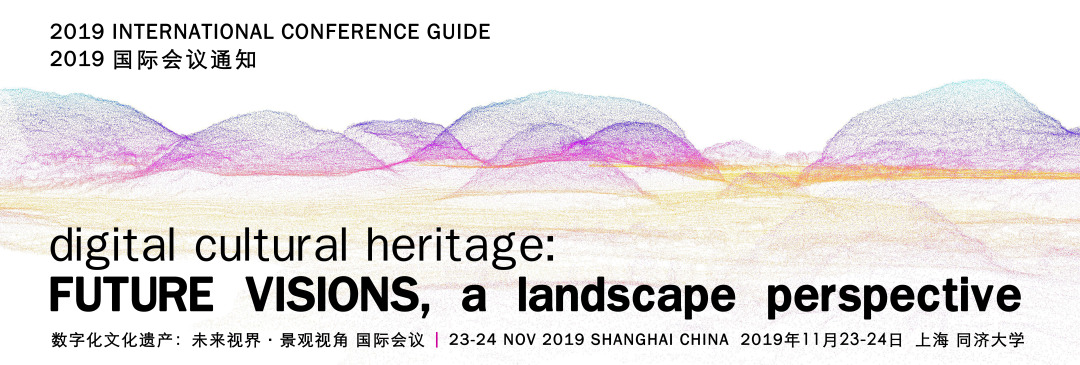
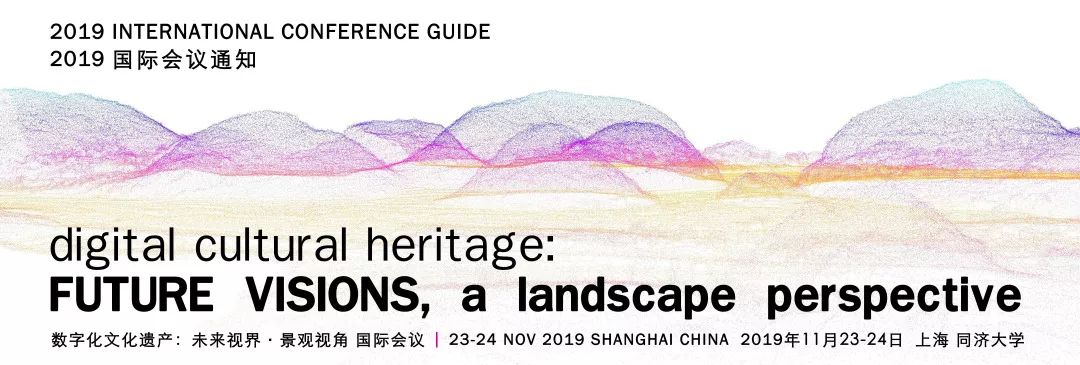
会议主题THEME
1992年,文化景观作为一个特殊类别进入世界遗产,拓展了文化遗产的概念,使之不仅包含精英的、壮丽的、静止的遗产,那些平民化的、日常的、动态的场所也进入了遗产保护的视野。随后联合国教科文组织于2003年和2011年先后发布了《保护非物质文化遗产公约》和《关于城市历史景观的建议书》,带来了一系列与遗产空间、时间和非物质维度相关的保存、展示以及可持续发展的新议题。2003年,联合国教科文组织发布了《保存数字遗产宪章》,再一次更新了我们对遗产的理解,使之包含那些“以数字方式生成的或从现有资源转换成数字形式的”文化作品和信息产品。宪章肯定了公共知识保存机构的重要角色,并认识到数字化技术为增强历史资源的可用性带来了重要机遇。同时,宪章也指出了技术更迭给遗产信息保存带来的风险,并强调必须针对数字遗产建立必要的立法支持。
在上述研究进展和保护实践的推动下,数字化遗产和文化景观成为近年来遗产领域讨论的热点。数字化技术能够优化遗产档案的保存,通过交互式媒体增强遗产解说的效果,通过感知体验丰富遗产档案的类型,通过众包数据优化对历史的阐释;文化景观是文化与自然的共同产物,彰显着长期以来人与环境之间的深刻互动和持续不断的跨时空、跨文化的交流。但是,数字化遗产和文化景观这两大重要议题的交点并未得到充分探讨,对数字化文化景观的探索将引起我们对遗产真实性、所有权、价值等重要话题的讨论,并重新思考“活态遗产”和遗产价值可持续发展等重要议题。
本次会议希望探讨数字化技术在文化景观遗产中的多样化应用和相关技术挑战。会议聚焦如何利用数字化技术研究文化与自然之间过去、现在和未来的联系。会议重点关注的议题包括:我们需要利用数字化技术捕捉、转化和体验什么?为什么需要做这些?如何阐释动态化的遗产景观并表现它们?为谁而作?为了后代,文化景观在何时需要被保护?为了当代,如何才能实现文化景观的可持续化管理?会议将聚焦数字化文化景观遗产这一新兴领域以及已经逐渐形成的文化遗产管理实践领域,将为与会嘉宾提供一个多学科的平台,探讨创新型数字化技术的发展和应用,并探寻保护、展示和可持续管理文化景观的最佳实践途径。
The adoption of the Charter on the Preservation of Digital Heritage by UNESCO in 2003, formally expanded the concept of heritage to encompass cultural works and informational products either ‘created digitally, or converted into digital form’. The Charter was primarily a response to the concerns of institutions appointed to maintain repositories of public knowledge, such as museums, libraries and archives. The Charter affirms the role of such institutions and acknowledges opportunities to broaden access to historic resources through digital technologies. It also recognises the risks posed by technological obsolescence and the need to address supportive legislation for digital heritage. The Charter’s focus has, however, since been criticised for taking too narrow a view of what has become a rapidly progressing environment of digital tools, technologies and applications.
The concept of heritage also expanded with the recognition of cultural landscapes as a distinct category of World Heritage in 1992. This was followed by the adoption of UNESCO’s Convention for the Safeguarding the Intangible Cultural Heritage in 2003, and Recommendation on the Historic Urban Landscape in 2011. While not as technologically seductive as the digital environment, cultural landscapes present unique preservation, presentation and sustainability issues associated with their spatial, temporal and intangible heritage qualities. The cultural landscape concept has similarly received criticism. Through failure to adequately articulate the dynamic nature of cultural heritage, the concept remains essentially conservation-driven and lacks the descriptive precision necessary to position cultural landscapes within mainstream planning and development frameworks.
Driven by these developments and criticisms, there has been significant interest in both digital heritage and cultural landscapes over recent years. The junction between the two, however, remains essentially under-explored. Digital technologies can improve conservation documentation and preservation techniques, enhance interpretation with interactive media, enrich archives with sensory experiences, and augment histories with crowdsourced data. Cultural landscapes can epitomise the nexus between cultural and natural heritage, acknowledge significant human interaction with environments over time, and recognise enduring intercultural dialogue across space, time and societies. Yet both can also provoke questions about authenticity, ownership and value, and challenge the concept of ‘living heritage’ and the sustainability of heritage values.
This conference seeks to explore the multiple implications and theoretical challenges of digital technologies for cultural landscapes. The conference will focus less on descriptive projects and more on how digital technologies can contribute to debates about the relationship between the cultural and natural past, present and future. What do we capture, commodify and experience using digital technologies and why? How are dynamic cultural landscapes interpreted, negotiated and represented and for whom? When should cultural landscapes be protected for future generations and how can they be managed sustainably for the present? The conference will focus on the emerging disciplines of digital cultural heritage and the established practice of heritage management, providing a platform for critical debate between those developing and applying innovative digital technology, and those seeking to integrated best practice into the preservation, presentation and sustainable management of historic cultural landscapes.
会议地点 VENUE
上海市四平路1239号同济大学,建筑与城市规划学院
College of Architecture and Urban Planning, Tongji University,1239 Siping Road, Shanghai, 200092 China
主办单位 ORGANISING INSTITUTIONS
同济大学 建筑与城市规划学院(中国·上海)
昆士兰大学 建筑学院(澳大利亚·布里斯班)
国际古迹遗址理事会-国际风景园林师联合会 文化景观科学委员会
College of Architecture and Urban Planning (CAUP), Tongji University (Shanghai, China)
School of Architecture, University of Queensland (Brisbane, Australia)
ICOMOS-IFLA International Scientific Committee on Cultural Landscapes (ISC CL)
支持单位 SUPPORTING INSTITUTIONS
中国风景园林学会 - 文化景观专业委员会
联合国教科文组织亚太地区世界遗产培训与研究中心(上海)
联合国教科文组织国际自然与文化遗产空间技术中心
《中国园林》
《Built Heritage》
同济大学建筑与城市规划学院建成环境技术中心
国际古迹遗址理事会阐释与展示科学委员会
Chinese Society of Landscape Architecture – Cultural Landscape Committee (CHSLA CLC)
World Heritage Institute of Training and Research for the Asia and the Pacific Region (Shanghai) under the auspices of UNESCO (The WHITR-AP, Shanghai)
International Centre on Space Technologies for Natural and Cultural Heritage under the auspices of UNESCO
Chinese Landscape Architecture Journal
Built Heritage Journal
The Built Environment Technology Centre, CAUP Tongji University
ICOMOS International Scientific Committee on Interpretation and Presentation of Cultural Heritage Studies (ICIP)
参会嘉宾 GUESTS (详细名单将于会前发布)
国内外相关领域专家学者、实践者
国内外相关专业研究生
Experts and scholars from China and abroad
Postgraduate students
会议召集人 CONFERENCE CONVENERS
韩锋 教授,杨晨 助理教授,同济大学,中国
Chris Landorf副教授,Kelly Greenop博士,昆士兰大学,澳大利亚
Professor Feng Han, Assistant Professor Chen Yang, Tongji University, China
Associate Professor Chris Landorf, Dr Kelly Greenop, University of Queensland, Australia
会议参考日程AGENDA
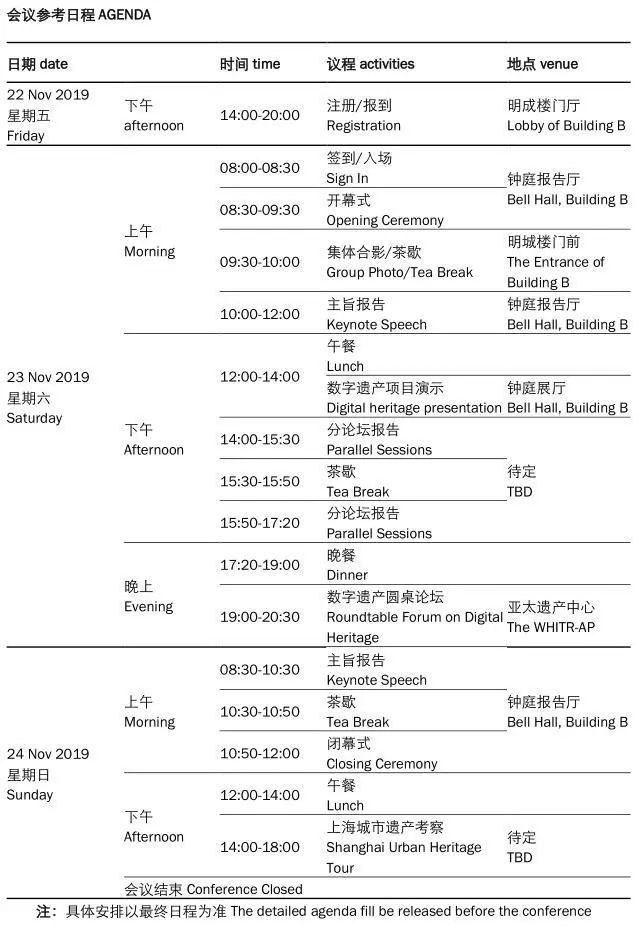
主旨报告嘉宾 KEYNOTE SPEAKERS
李德仁 院士 教授 | 武汉大学,中国
Professor LI Deren | Wuhan University, China
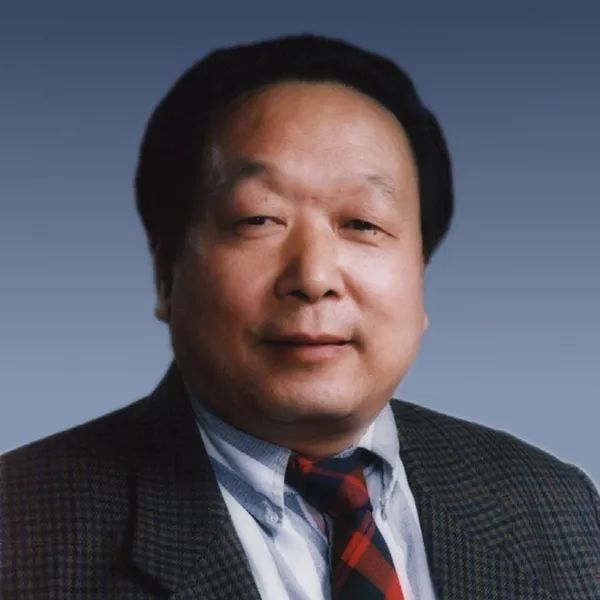
演讲题目:文化遗产数字化保护的方法及应用:从莫高窟到志莲净苑 (作者:李德仁院士,朱宜萱教授)
Topic: Method and Application of Digital Preserving for Cultural Heritage - From Mogao Grottoes to Chi Lin Nunnery (By Prof. Li Deren and Prof. Zhu Yixuan)
演讲者简介:李德仁院士,武汉大学教授、博士生导师,中国科学院院士,中国工程院院士,国际欧亚科学院院士,国际宇航科学院院士,德国斯图加特大学博士,瑞士苏黎世联邦理工学院名誉博士。李德仁院士是国际著名的摄影测量、遥感、地理信息学家和教育家,活跃在对地观测领域的战略科学家,现任武汉大学学术委员会主任,地球空间信息技术协同创新中心主任,武汉市科学技术协会主席。李德仁院士长期在教育战线工作,共培养博士200余名,为我国培养此领域高层次人才做出了突出贡献,出版专著11部,发表论文850余篇,被引用超过24000次。李德仁院士荣获国家科学技术进步奖(创新团队)1 项、国家科技进步二等奖5 项(其中4 项排名第一、1 项排名第二)、国家教学成果二等奖2 项(均排名第一)、何梁何利科学与技术进步奖1项。2012年,国际摄影测量与遥感学会授予他“荣誉会员”称号,这是国际上该领域的最高荣誉,全世界仅有10人享此殊荣。
Resume: LI Deren is a professor and PhD supervisor at Wuhan University. Prof. Li is a member of both the Chinese Academy of Sciences and the Chinese Academy of Engineering. He is also a member of the International Eurasian Academy of Sciences and the International Academy of Astronautics. Prof. Li received his PhD from the University of Stuttgart in Germany and is an Honorary Doctor of the Federal Institute of Technology Zurich in Switzerland. Professor Li is an internationally renowned expert and educator in photogrammetry, remote sensing and geoinformatics, and an active strategic scientist in the field of Earth observation. Prof. Li is currently Director of the Academic Committee of Wuhan University, Director of the Geospatial Information Technology Collaborative Innovation Center, and Chairman of the Wuhan Science and Technology Association.Prof. Li has successfully supervised over 200 PhD candidates,published 11 books and over 850 papers, which have been cited over 24,000 times. Prof. Li Deren has won the National Science and Technology Progress Award (Innovation Team) and the National Science and Technology Progress Awards five times (4 of which ranked first and 1 ranked second). He has won the 2nd National Teaching Achievement Award twice (all ranked first), and the He Liang He Li Science and Technology Progress Award. In 2012, the International Society for Photogrammetry and Remote Sensing awarded him the title of “Honorary Member”, the highest honour in the field with only 10 people from all over the world enjoying this honor.
蒂姆·温特 教授 | 西澳大利亚大学, 澳大利亚
Professor Tim Winter | The University of Western Australia, Australia
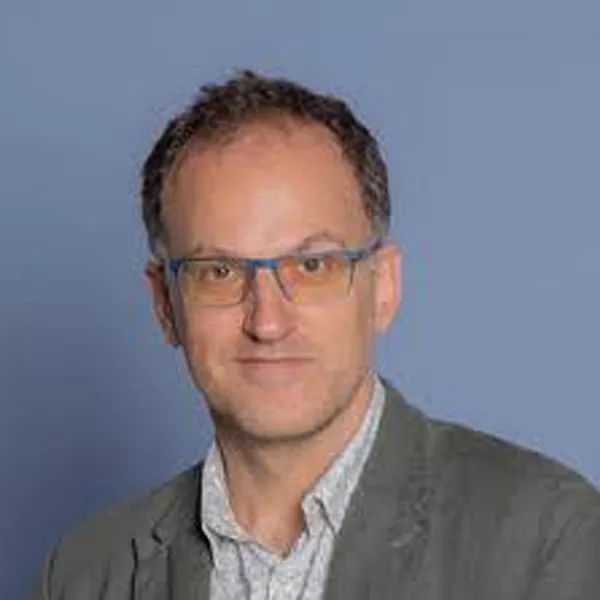
演讲题目:数字化丝绸之路:跨越边界的遗产
Topic: The Digital Silk Roads: Heritage across borders
演讲者简介:温特教授是一位社会学家,此前曾在新加坡,悉尼和墨尔本任职,目前他在西澳大利亚大学担任批判遗产研究方向教授。温特教授将历史文化视为外交和经济发展的媒介,他对中国的“一带一路”倡议以及21世纪丝绸之路的复兴有深入的研究,主要探讨如何使用历史和遗产来促进整个欧亚地区贸易和外交关系的发展等重要问题。温特教授的另一个主要研究领域是在亚洲和波斯湾地区快速城市发展背景下的建筑环境可持续性。他着重研究日常物质文化以及与热舒适性相关的社会实践是如何支撑、反映和建构人们对现代性、进步和发展的认知,进而重新解读如何通过使用日常技术和文化变革来实现更加可持续的生活方式。
Resume: Professor Winter is a sociologist by training and a university academic. Having previously held positions in Singapore, Sydney and Melbourne, he has recently taken up a professorship in Critical Heritage Studies at the University of Western Australia. His work centres on the cultural past as a vector of nationalism, diplomacy, geopolitics and economic development. He is currently writing two books on heritage diplomacy. The first examines the China's Belt and Road Initiative, and the revival of the Silk Roads for the 21st century. Fascinating questions are arising around the use of history and heritage to advance trade and diplomatic relations across the Eurasia region. The second volume explores heritage diplomacy as a conceptual and historical issue. It addresses the role culture and heritage conservation have played in international relations, and how they come to be institutionally structured via an elaborate dance of cosmopolitanism and national interest. Professor Winter’s other key research area focuses on built environment sustainability in the context of rapid urban development in Asia and the Gulf. Casting its focus on air conditioning, this work considers how everyday material cultures and social practices associated with thermal comfort enable, reflect and constitute broader ideological abstractions of modernity, progress and development. The aim is to rethink the use of everyday technologies and the cultural changes necessary for more sustainable lifestyles.
汤姆·布里格登 博士
珀塞尔建筑、规划、遗产咨询公司,英国
Dr Tom Brigden | Purcell Architects, Master Planners, Heritage Consultants,
United Kingdom
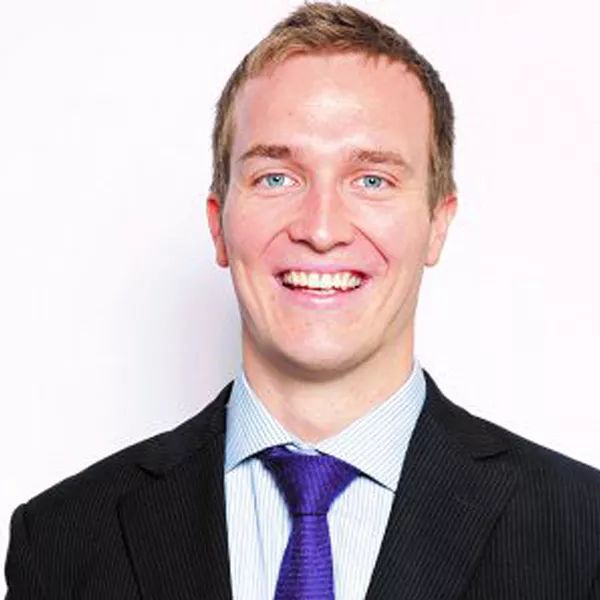
演讲题目:遗产保护与建造中的数字化工具
Topic: Digital Tools for Heritage Management and Construction
演讲者简介:汤姆·布里格登博士具有建筑师及历史研究的专业背景。他毕业于英国卡迪夫大学威尔士建筑学院,获得T. Alwyn Lloyd 2009年度最佳表现奖学金。他在建筑方面拥有丰富的教学经验,曾在卡迪夫大学,纽卡斯尔大学,建筑协会和华盛顿的华盛顿亚历山大建筑中心任教。Tom的博士论文在2014年被评为RIBA总统研究奖杰出论文。
Resume:Tom has technical skills as an Architect as well as historical research and reporting skills. He graduated from the Welsh School of Architecture with the T. Alwyn Lloyd Scholarship for Best Performance 2009. He has teaching experience in architectural education, having tutored and lectured at Cardiff University, Newcastle University, the Architectural Association and the Washington Alexandria Architecture Centre, Washington D.C. Tom’s doctoral dissertation was commended as ‘outstanding’ at the RIBA President’s Awards for Research 2014.
马里奥·桑塔纳 副教授|卡尔顿大学,加拿大
Associate Professor Mario Santana | Carleton University, Canada
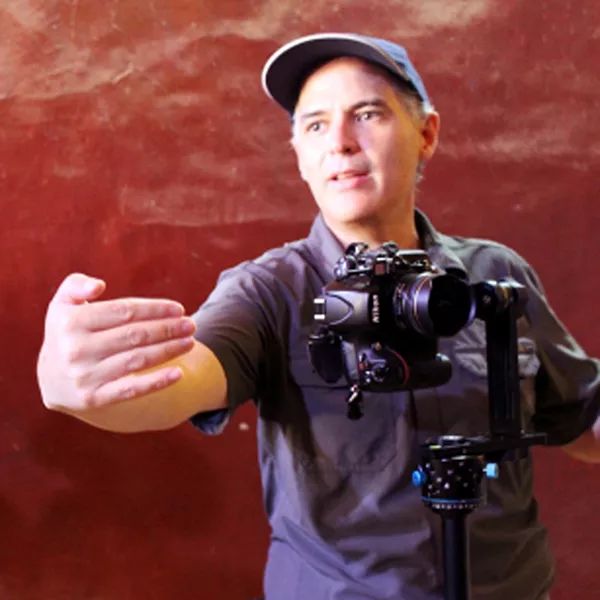
演讲题目:遗产保护的数字化工作流程及其面临的伦理与技术挑战
Topic:Harnessing digital workflows for the understanding, promotion and participation in the conservation of heritage sites by meeting both ethical and technical challenges
演讲者简介:马里奥·桑塔纳是加拿大卡尔顿大学土木与环境工程系副教授,也是卡尔顿沉浸媒体研究实验室遗产工程创业项目主任。桑塔纳教授也是鲁汶大学雷蒙德·勒梅尔国际保护中心的客座教授。除教学之外,他还担任国际古迹遗址理事会(ICOMOS)副主席,并且是国际古迹遗址理事会文化遗产记录科学委员会(CIPA)的前任主席。桑塔纳教授一直是盖蒂保护研究所的学者,并且在文化遗产记录领域领衔和参与多个国际项目,合作单位包括盖蒂保护研究所、联合国教科文组织、巴林文化和古物管理局、国际文化财产保护与修复研究中心、世界古迹基金会、联合国开发署、以及阿布扎比文化和旅游部等。
Resume:Mario Santana-Quintero, is an associate professor at department of Civil and Environmental Engineering Carleton University. He is also the Director of the NSERC Create program Heritage Engineering based at the Carleton immersive Media Studio Lab (CIMS). He is also a guest professor at the Raymond Lemaire International Centre for Conservation (University of Leuven). Along with his academic activities, he serves as Vice President of the International Council of Monuments and Sites (ICOMOS) and he is the past president of the ICOMOS Scientific Committee on Heritage Documentation (CIPA). Furthermore, he has been a Getty Conservation Institute scholar and he collaborated in several international projects in the field of heritage documentation for The Getty Conservation Institute, UNESCO, Bahrain Authority for Culture and Antiquities, ICCROM, World Monuments Fund, UNDP, Welfare Association, and the Department of Culture and Tourism of Abu Dhabi.
参会注册 REGISTRATION
本次会议将不收取注册费,参会者需要提前注册并登记个人信息,请于2019年11月10日前将参会注册表(附件1)发送至dch2019@tongji.edu.cn,并在邮件标题注明“2019DCH参会注册”。因现场会议设备有限,请提早注册。
This conference is free for all participants. Participants need to register and provide personal information prior to the conference for catering and organisational purposes. Participants need to send their registration form (appendix 1) to dch2019@tongji.edu.cn before 10 November 2019. Due to the need to prepare conference facilities, the on-site registration quota is limited. Please register in advance.

附件1 二维码
温馨提示 TIPS
本次国际会议不收取注册费,因此请参会嘉宾自行提前安排食宿。会务组为您联系了上海同济君禧大酒店(上海市彰武路50号),可为本次宾客住宿提供协议价格,因房间没有预留,请您提前拨打预订部电话预定:+86-21-33626888。
Participants need to pay for their own transportation, accommodation and other costs in Shanghai. The conference service team has contacted Kingswell Hotel Tongji (No. 50 Zhangwu Road, Shanghai) for you to provide a preferential price for the accommodation. You can call the reservation desk of the hotel for service: +86-21-33626888. The rooms are not reserved. Please make a reservation in advance.

注:扫描二维码,进入报名微信群
会议现场需要身份证或护照换取同声传译设备
Scan the QR code and enter the registration WeChat group.
Participants need to bring your ID card or passport for simultaneous interpretation device
- end -
